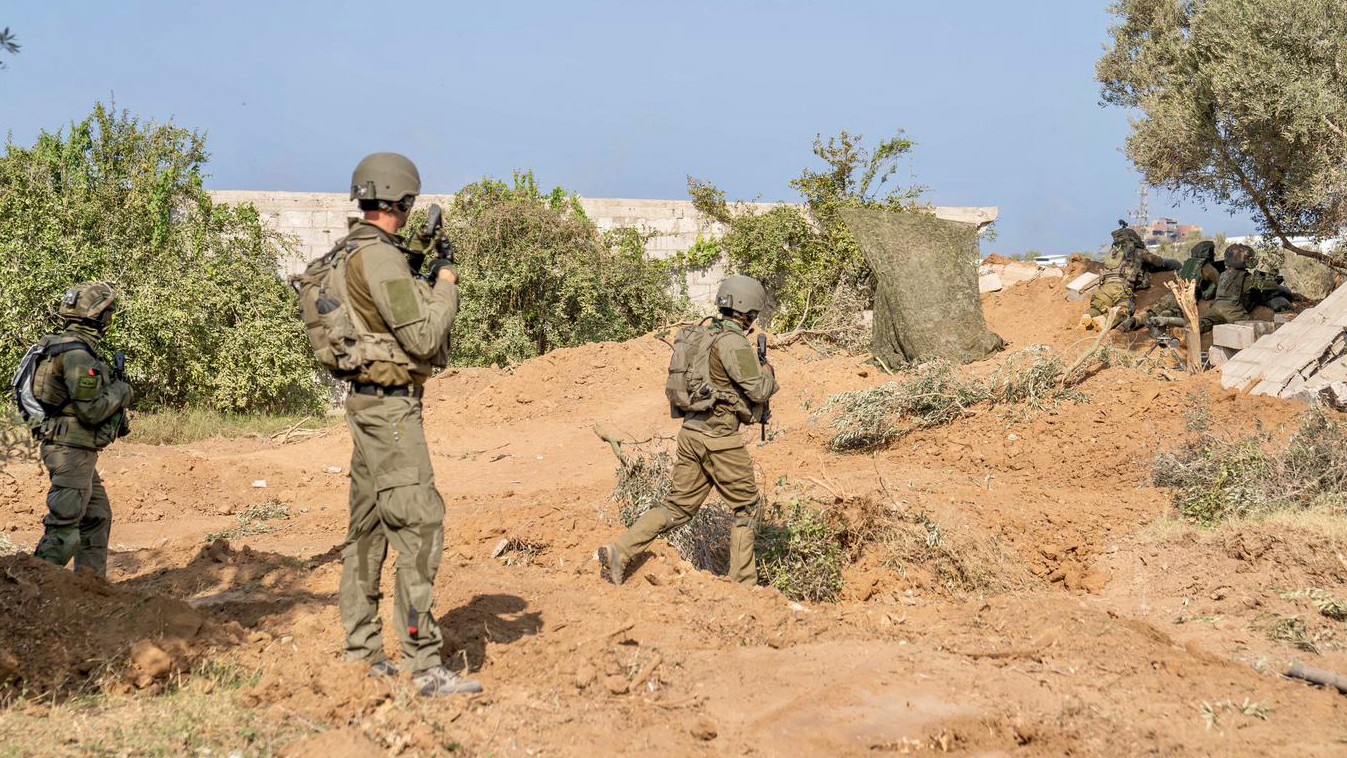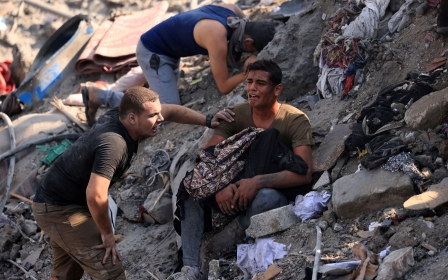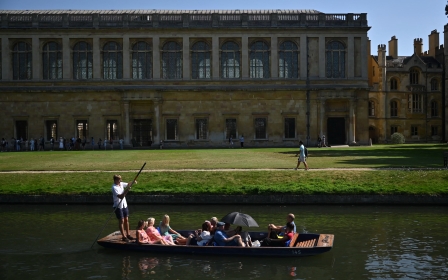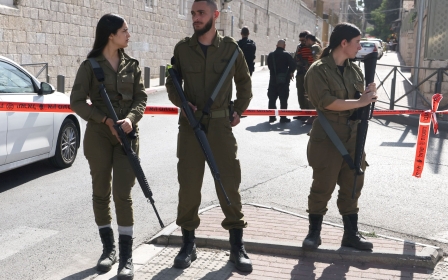Israel-Palestine war: Israel bombs Gaza hospitals as Nasrallah breaks silence
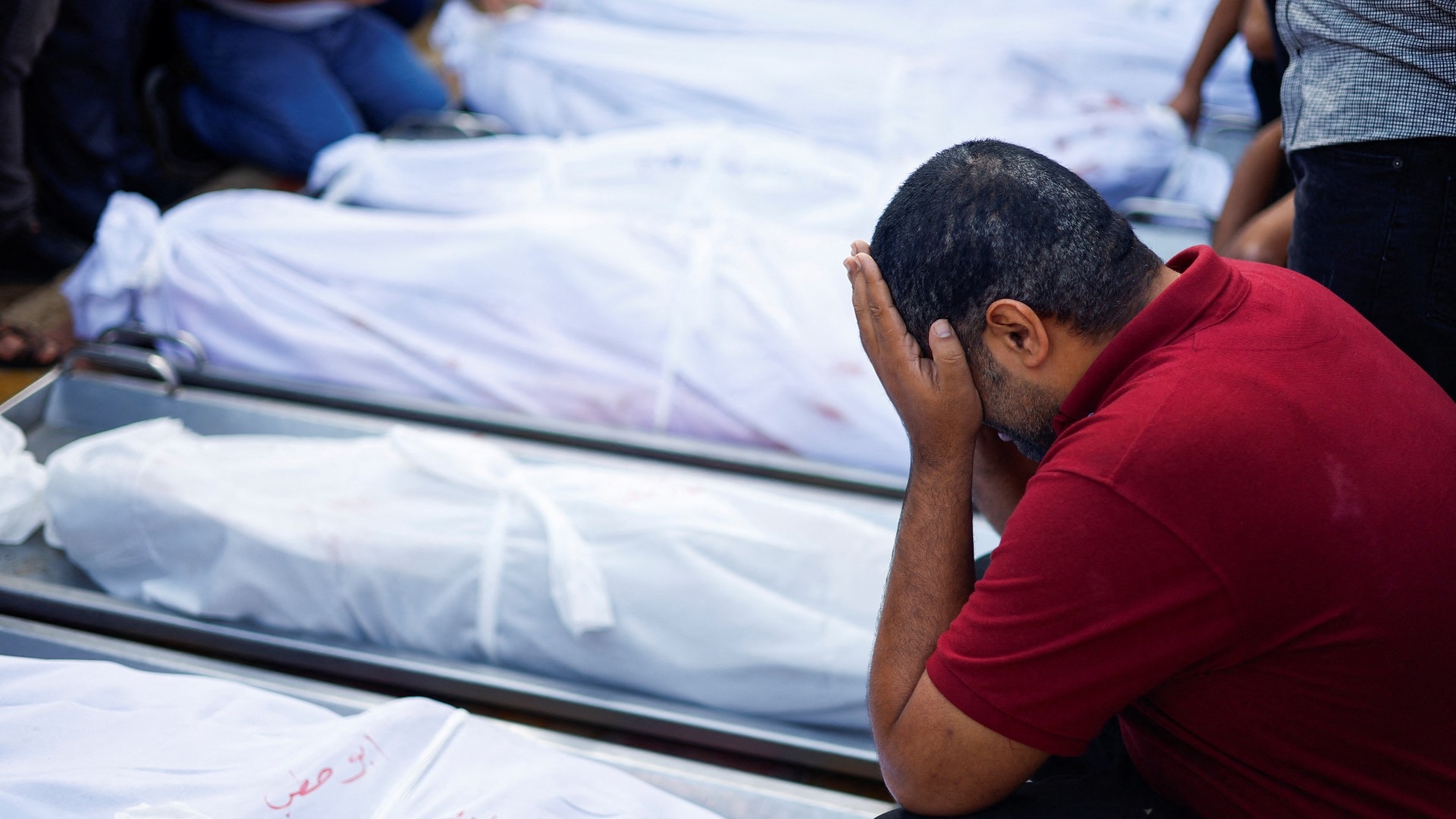
Israel targeted three Gaza hospitals within a few hours on Friday, killing and wounding more than a dozen patients and people seeking shelter from air strikes, the Palestinian health ministry said.
At least 15 people were killed in the bombing on al-Shifa, Gaza's largest hospital, according to Al Jazeera. Video footage circulating online showed bloody and chaotic scenes.
Meanwhile, the courtyards of the Indonesian hospital and al-Quds hospital were also hit. All three hospitals have been places Palestinians have sought shelter from Israeli attacks.
Israel confirmed on Friday that they hit the convoy and said an ambulance was being used by Hamas to transport fighters, without providing any evidence for the claim. Palestinian officials vigorously denied the claim challenging Israel to present evidence to substantiate the claim.
Ashraf al-Qedra, the spokesman for the Palestinian health ministry, said jets struck a convoy of critically wounded people at the gates of al-Shifa hospital, who were in ambulances on their way to the south of Gaza.
New MEE newsletter: Jerusalem Dispatch
Sign up to get the latest insights and analysis on Israel-Palestine, alongside Turkey Unpacked and other MEE newsletters
He said he asked the Red Cross to accompany the convoy to ensure its safety earlier in the day.
As Israeli ground forces surrounded Gaza City and moved deeper into the coastal enclave's north, Palestinians fleeing the onslaught were killed on the al-Rasheed road, Gaza's coastal artery. Dead bodies were seen strewn across the tarmac.
An Israeli air strike also hit a UN-run school housing displaced Palestinians killing at least 20 people, according to Palestinian health officials.
Dozens were also left injured in the attack on the Osama Ben Zaid school, located in the Saftawi neighbourhood of northern Gaza.
At least 9,227 people, including 3,826 children, have been killed in the four-week-long Israeli assualt on Gaza, according to local health officials.
Israel began bombarding the coastal enclave after a Hamas-led attack on Israeli communities on 7 October, which killed around 1,400 Israelis, the majority of them civilians. Twenty-three Israeli troops have been killed in Gaza since its ground offensive began a week ago.
Among the targets hit in Gaza on Friday was a cemetery, with local media reporting at least Palestinian seven workers there killed.
During the afternoon, the world's attention was briefly directed away from Gaza and towards the leader of Hezbollah, Hassan Nasrallah.
The Lebanese movement has been clashing with Israeli troops along Lebanon's border with Israel since hostilities began, yet its leader had not yet made a speech addressing developments. More than 50 Hezbollah fighters have been killed so far.
Follow our live blog for all the latest on the Israel-Palestine war
Nasrallah warned that a regional war was a "realistic possibility" and said Hezbollah's goal was to end the war on Gaza and ensure a Hamas victory.
He said the Shia movement and other members of the anti-Israel Axis of Resistance, which includes Hamas and is led by Iran, were unaware of the Palestinian group's plan to attack on 7 October.
West Bank violence
Since Israel cut off all water, electricity, fuel and food supplies for Gaza on 9 October, Palestinians have been going to the sea to wash and clean their belongings, according to Reuters. The seawater is causing Palestinians skin irritation in the absence of any clean water.
A lack of fuel and the damage on roads has meant medical staff are being forced to travel around on bikes to reach the overwhelming number of patients, the agency added.
Meanwhile, US drones have been spotted in the sky trying to locate the 240 captives taken by Palestinian fighters on 7 October. Many of them hold foreign citizenship.
The United Nations' agency for Palestinian refugees, Unrwa, said that 72 of its staff have been killed in Gaza by Israel since the start of the war. The French Institute in Gaza was hit by an air strike on Friday, the French foreign ministry said.
Violence was witnessed in the occupied West Bank on Friday, too.
Israeli raids and drone strikes intensified, with nine Palestinians killed overnight, according to the Palestinian health ministry. The raids took place in Jenin, Hebron, Nablus and Qalandiya.
West of Ramallah, a 33-year-old was shot dead by an Israeli soldier while he was on his way home from Friday prayers. Eyewitnesses told Middle East Eye the worshippers didn’t pose any danger to the soldiers.
According to local media, Israeli forces have also cut off the water supply in the occupied West Bank village of Beit Lid, leaving 8,000 people without water.
Israeli forces and settlers have killed at least 141 Palestinians in the West Bank since the start of the war.
In occupied East Jerusalem, meanwhile, Israeli forces restricted worshippers from entering Al-Aqsa Mosque for Friday prayers, and used tear gas to disperse Palestinians in the Wadi al-Joz neighbourhood.
Torture allegations
When hostilities began, Israel detained an estimated 4,500 laborers from Gaza who were in the country on work permits.
On Friday, some of them had finally been released and were made to walk on foot for about 6km into the enclave, despite the bombardment and ground offensive.
Several of them told Middle East Eye and other media that they had been tortured and subjected to various forms of abuse by the Israeli military, including being stripped naked and having boiling water thrown on them. MEE has asked the Israeli military for comment.
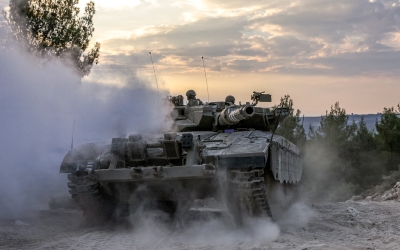
Israel has received the staunch support of western governments during the war. US Secretary of State Antony Blinken returned to Israel for the second time in less than a month on Friday morning.
He reiterated "and made clear Israel's right to defend itself," and said that steps must be taken to prevent regional escalation.
However, Ireland’s Prime Minister Leo Varadkar described Israel's war on Gaza as "something approaching revenge", in what seems to be some of the strongest criticism against Israel used by a European leader.
The United Arab Emirates also weighed in, warning about the war expanding into a broader regional crisis, and saying it was working “relentlessly” to facilitate a ceasefire for humanitarian purposes. The UAE established open diplomatic ties with Israel in 2020.
The Arab public, however, is hugely supportive of Palestinians under Israeli bombardment, with large pro-Palestine rallies taking place in Jordan and Yemen on Friday.
Middle East Eye delivers independent and unrivalled coverage and analysis of the Middle East, North Africa and beyond. To learn more about republishing this content and the associated fees, please fill out this form. More about MEE can be found here.


